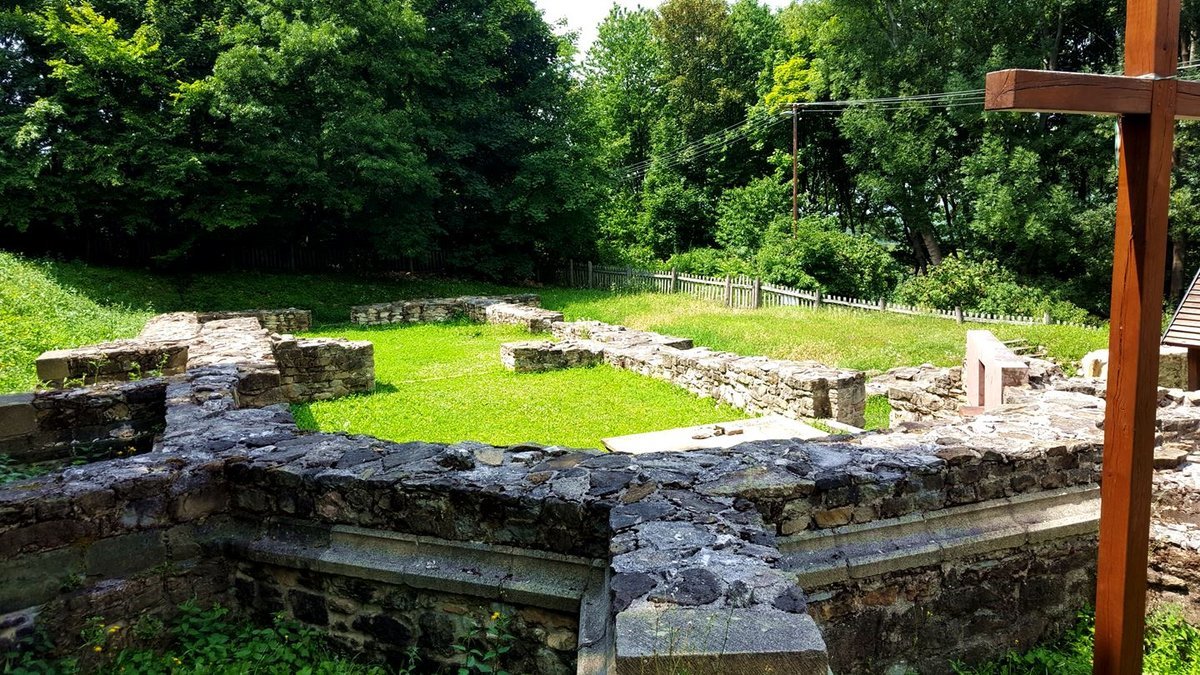Now my Latin is far from perfect, and I don’t consider myself much of a scholar of it. However, I did study it for a few years. So with a bit of help from a Latin Word Study Tool and one of several dictionaries, I can get through it. I have more than one partly finished translation project. However, tonight a fellow religious sent me something short.
It is about when some monasteries were destroyed during the Turisk invasion of Hungry, where the Pauline Fathers were founded. The image attached to this post is not the main monastery being talked about but one of those that burned down and was never rebuilt.
Multa enim monasteria ordinis nostri in hoc periculo desolata sunt. Nam monasterium principale et caput ordinis heremitarum in Hungária supra Budam ad honorem sancti Laurentii || fundatum, amaenissimum et totius regni solatium delectabile omnino desolaverunt. In ecclesia tabulae splendidae, chorus mirifice et sumptuose fabricatus, organum elegans et omnia alia igne vehementi conflagrata sunt, et sic testudo sanctuarii corruit. Altaria destruxerunt, imagines frustatim conciderunt, sepulchra suffoderunt, lapidem superiorem tumbae marmoreae sancti Pauli subtiliter sculptum violenter deposuerunt et in tres partes fregerunt. Habitacula monasterii egregia et omnes officinae igne consumpta solo sunt prostrata. Utensilia omnia fregerunt, victualia omnia consumpserunt. Decem diebus in monasterio pausaverunt, et omnes angulos, omnia latibula perlustraverunt, suffoderunt, destruxerunt. Et nullibi tantum saevierunt sicut in hoc monasterio. Et ut videtur usque ad finem mundi nunquam hoc monasterium in pristinum statum reformabitur. Verum protegente Deo et sancto Paulo ornamenta ecclesiastica omnia permanserunt illaesa in secreto loco, quo fratres absconderant, et in capella sancti Pauli ignis non fuit accensus, nisi per valvam exterius in parte, sed tamen alia omnia sunt destructa. In libraria usque ad mille florenos libri concremati sunt. Postquam autem audierant fratres profligationem Hungarorum, corpus sancti Pauli eremitae quam citissime tulerunt, et ad Trinchinium, castrum fortissimum waywodae Transilvanensis deportaverunt. Eodem tempore viginti quinque fratres occisi sunt a Tureis, aliqui etiam miro modo vulnerati. Monasteria vero undecim combusta et desolata sunt.
For many of our Order’s Monasteries were destroyed in this period. They abandoned the principal and head monastery of the Order of Hermits in Hungry, which was above the Buda, founded in honour of Saint Laurentius, the most lovely and delightful solace of all the kingdom. In the Church, the splendid panels, the wonderful and expensively built choir, the beautiful organ and everything else were violently burned by fire. So the dome of the sanctuary collapsed. The altars they destroyed, the images they cut to pieces, the tombs they dug up, the finely carved stones above the tomb in memory of Saint Paul they violently pulled down and broke into three parts. The excellent living quarters of the monastery and all the offices were consumed by fire and strewn on the ground. They broke all the utensils and consumed all the provisions. They stayed in the monastery for ten days. They searched, pulled down and destroyed every corner and every hiding place. And nowhere were they so violent as in this monastery. And this it will be seen that even until the end of the world, this monastery will never be restored to its former state. True, under the protection of God and Saint Paul, all the ecclesiastical ornaments remained unharmed in a secret place where the brothers had hidden them, and no fire was kindled in the chapel of Saint Paul except through a folding door on the outer side, but everything else was destroyed. Books worth up to a thousand florins were piled up in the libraries. And after the brethren had heard from the scattered Hungarians, they took the body of St. Paul the hermit as quickly as possible and conveyed it to Trinchinium, the strongest fortress of the Transylvanian wayward. At the same time, twenty-five brothers were killed by the Turks, and others were wounded bizarrely. However, eleven monasteries were burned and lay desolate.

